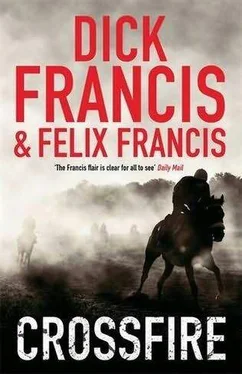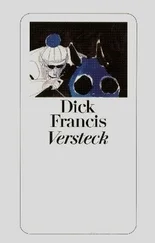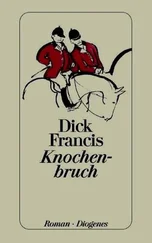Dick Francis - Crossfire
Здесь есть возможность читать онлайн «Dick Francis - Crossfire» весь текст электронной книги совершенно бесплатно (целиком полную версию без сокращений). В некоторых случаях можно слушать аудио, скачать через торрент в формате fb2 и присутствует краткое содержание. Жанр: Боевик, на английском языке. Описание произведения, (предисловие) а так же отзывы посетителей доступны на портале библиотеки ЛибКат.
- Название:Crossfire
- Автор:
- Жанр:
- Год:неизвестен
- ISBN:нет данных
- Рейтинг книги:3 / 5. Голосов: 1
-
Избранное:Добавить в избранное
- Отзывы:
-
Ваша оценка:
- 60
- 1
- 2
- 3
- 4
- 5
Crossfire: краткое содержание, описание и аннотация
Предлагаем к чтению аннотацию, описание, краткое содержание или предисловие (зависит от того, что написал сам автор книги «Crossfire»). Если вы не нашли необходимую информацию о книге — напишите в комментариях, мы постараемся отыскать её.
Crossfire — читать онлайн бесплатно полную книгу (весь текст) целиком
Ниже представлен текст книги, разбитый по страницам. Система сохранения места последней прочитанной страницы, позволяет с удобством читать онлайн бесплатно книгу «Crossfire», без необходимости каждый раз заново искать на чём Вы остановились. Поставьте закладку, и сможете в любой момент перейти на страницу, на которой закончили чтение.
Интервал:
Закладка:
"But, sir," said the waiter, "that is for four people."
"I'm expecting three others," I said, moving over to the table and sitting down before he had a chance to stop me.
I ordered a sparkling mineral water, and when the waiter departed to fetch it, I opened the curtains in the window a few inches so I could clearly see mailbox 116.
The package was collected at twenty past one, by which time the Indian waiter no longer really believed that another three people were coming to join me for lunch.
I had almost eaten the restaurant out of poppadoms and mango chutney, and I was again getting desperate to have a pee, when I suddenly recognized a face across the road. And I would have surely missed the person completely if I'd gone to the loo.
It took only a few seconds for the collector to go into the mailbox shop, open box 116 with a key, remove the contents, close the box again and leave.
But not before I had snapped away vigorously with my new purchase.
I sat at the table and looked through the photos that I'd taken.
Quite a few were of the back of the person's head, and a few more had missed the mark altogether, but there were three perfect shots, in full-zoom close-up. Two of them showed the collector in profile as the package was being removed from the box, and one was full face as the person left through the shop door.
In truth, I hadn't really known who to expect, but the person who looked out at me from the camera screen hadn't even been on my list of possible candidates.
The face in the photograph, the face of my mother's blackmailer, was that of Julie Yorke, the caged tigress.
14
On Saturday morning at nine o'clock, I was sitting in Ian's car parked in a gateway halfway up the Baydon Road. I had chosen the position so I could easily see the traffic that came up the hill towards me out of Lambourn village. I was waiting for one particular vehicle, and I'd been here for half an hour already.
I had woken early again after another troubled night's sleep.
The same questions had been revolving around and around in my head since the early hours. How could Julie Yorke be the blackmailer? How had she obtained my mother's tax papers or, at least, the information in them?
And in particular, who was she working with?
There had to be someone else involved. My mother had always referred to the blackmailer as "him," and I had heard the whisperer myself on the telephone, and was pretty certain that it had been a man.
A motorized horse van came up the hill towards me. I sank down in the seat so that the driver wouldn't see me. I was not waiting for a horse van.
I yawned. I was tired due to lack of sleep, but I knew that I could exist indefinitely on just a few hours a night. Sometimes I'd survived for weeks on far less than that. And my overriding memory of my time at Sandhurst was that I was always completely exhausted, sometimes to the point of collapse, but I somehow kept going, as had all my fellow officer cadets.
I had again left Kauri House in Ian's car well before dawn, and before the lights had gone on in my mother's bedroom. I'd driven out of the village along the Wantage Road and had chanced driving in through the open gates of Greystone Stables, and up the tarmac driveway. I'd crept forwards slowly, scanning the surface in front of me in the glow of the headlights. My two sticks remained exactly where I'd left them, leaning on the small stones. Still no cars had been driven up here since the gates had been unlocked.
It had been a calculated risk to drive up to the sticks, but no more so than leaving the car down by the gate and walking. As it was, I'd been there no more than a minute in total.
I had then driven on into Wantage and parked in the market square under the imposing statue of King Alfred the Great with his battle-ax in one hand and roll of parchment in the other, designed to depict the Saxon warrior who became the lawgiver.
I'd bought the Racing Post from a newsagent in the town, not having wanted to buy one at the shop in Lambourn village in case I was spotted by someone who thought I was dead, or dying.
According to the paper, Ewen Yorke had seven horses running that afternoon at two different racetracks: three at Haydock Park and four at Ascot, including two in their big race of the day, the Group 1 Make-a-Wager Gold Cup.
Haydock was about midway between Manchester and Liverpool, and a good three hours' drive away. Ascot, meanwhile, was much closer, in the same county as Lambourn, and just a fifty-minute trip down the M4 motorway, with maybe a bit extra to allow for race-day traffic.
Ewen had a runner in the first race at both courses, and if he was going to be at Haydock Park in time for the first, he would be expected to drive his distinctive top-of-the-range white BMW up the hill on the Baydon Road sometime around ten o'clock, and by ten-thirty at the very latest.
So I sat and waited some more.
I turned on the car radio, but like the handbrake, it didn't work too well. In fact, it made an annoying buzzing noise even when the engine wasn't running. It was worse than having no radio at all, so I turned it off again.
I looked at the new watch I'd bought in Newbury the previous afternoon. It told me it was nine-thirty.
At nine forty-five I recognized a car coming up the hill towards me. It wasn't a white BMW but an aging and battered blue Ford-my mother's car.
I sank down as far as I could in the seat as she drove by, hoping that she wouldn't identify the vehicle in the gateway as that of her head lad. Even if she'd done so, I knew she wouldn't have stopped to enquire after "staff," and I gratefully watched as her car disappeared around the next corner. As I had expected, my mother was off to the Haydock Park races, where she had Oregon running in the novice hurdle, his last outing before the Triumph Hurdle at the Cheltenham Festival. Ian had told me that he was looking forwards to watching the race on Channel 4.
I went back to watching and waiting, but there was no sign of a white BMW.
At ten to eleven I decided it was time to move. I hadn't seen Ewen's car go past, but that didn't mean he hadn't gone to Haydock, it just meant he hadn't gone there via the Baydon Road. It was the most likely route from the Yorkes' house but certainly not the only one.
I moved Ian's car from the gateway on Baydon Road to another similarly positioned on Hungerford Hill, another of the roads out of Lambourn. If Ewen Yorke was going to Ascot this afternoon he would almost certainly pass this way, and would do so by twelve-thirty at the absolute latest if he was going to be in time to saddle his runner in the first race.
The distinctive white top-of-the-range BMW swept up the hill at five minutes to twelve, and I pulled out of the gateway behind it.
I had planned to follow him at a safe distance to avoid detection, and to make sure that he actually did drive to the motorway and join it going east towards Ascot. As it was, I had no need to worry about keeping far enough back so that the driver couldn't see that it was me behind him. Ian Norland's little Corsa struggled up Hungerford Hill as fast as it could, but Ewen Yorke's powerful BMW was already long gone, and was well out of sight by the time I reached the top road by The Hare pub.
I didn't like doing it, but I'd have to assume that he had, in fact, gone to Ascot and that he wouldn't be back in Lambourn for at least the next five hours. Once upon a time I would have been able to check by watching the racing from Ascot on BBC television. That was sadly no longer the case, as, except for the Grand National, the BBC had cut back its jump-race coverage to almost nothing. Someone in that organization seemed to believe that if a sport didn't involve wheels, balls or skis, it was hardly worth reporting.
Читать дальшеИнтервал:
Закладка:
Похожие книги на «Crossfire»
Представляем Вашему вниманию похожие книги на «Crossfire» списком для выбора. Мы отобрали схожую по названию и смыслу литературу в надежде предоставить читателям больше вариантов отыскать новые, интересные, ещё непрочитанные произведения.
Обсуждение, отзывы о книге «Crossfire» и просто собственные мнения читателей. Оставьте ваши комментарии, напишите, что Вы думаете о произведении, его смысле или главных героях. Укажите что конкретно понравилось, а что нет, и почему Вы так считаете.












